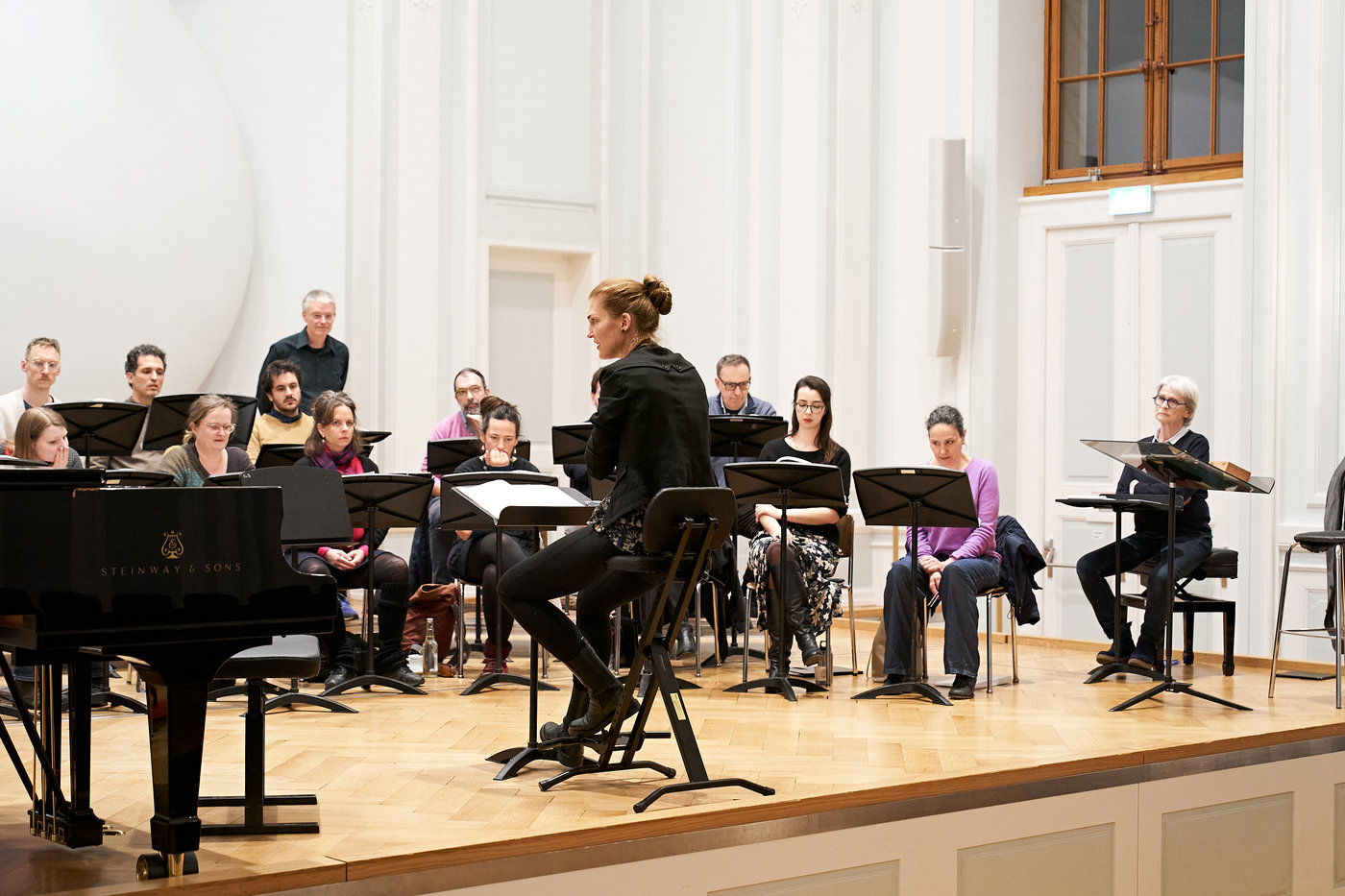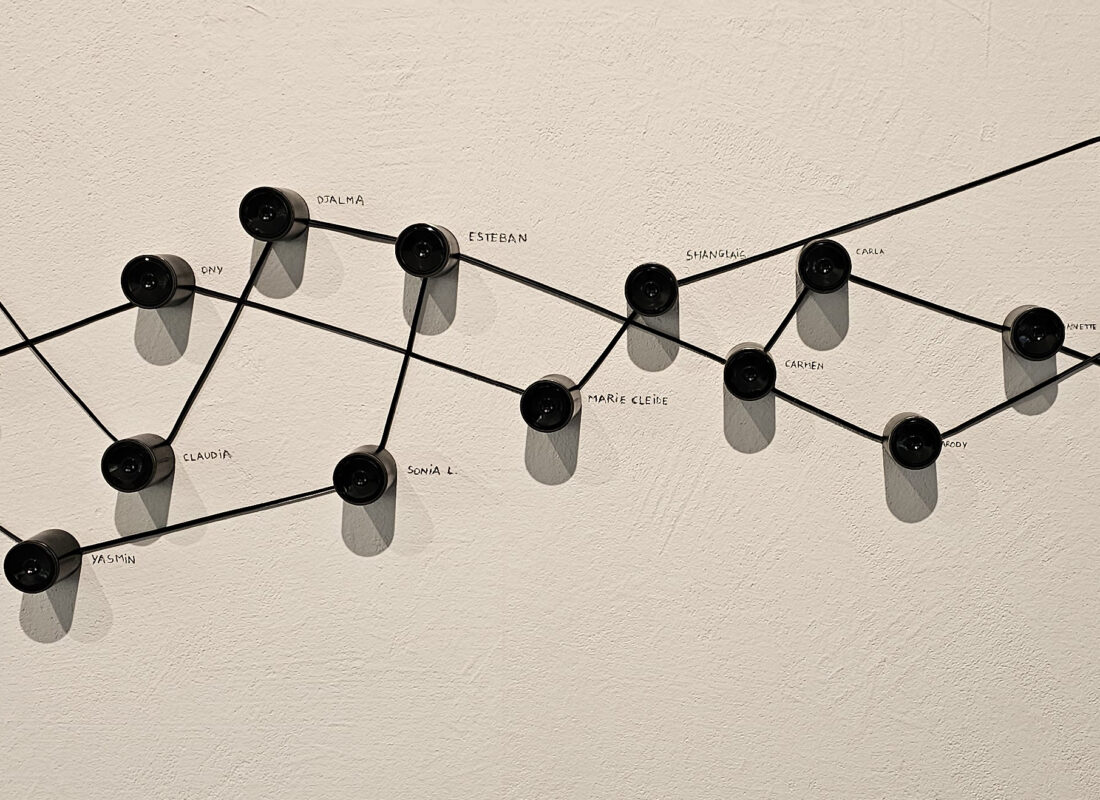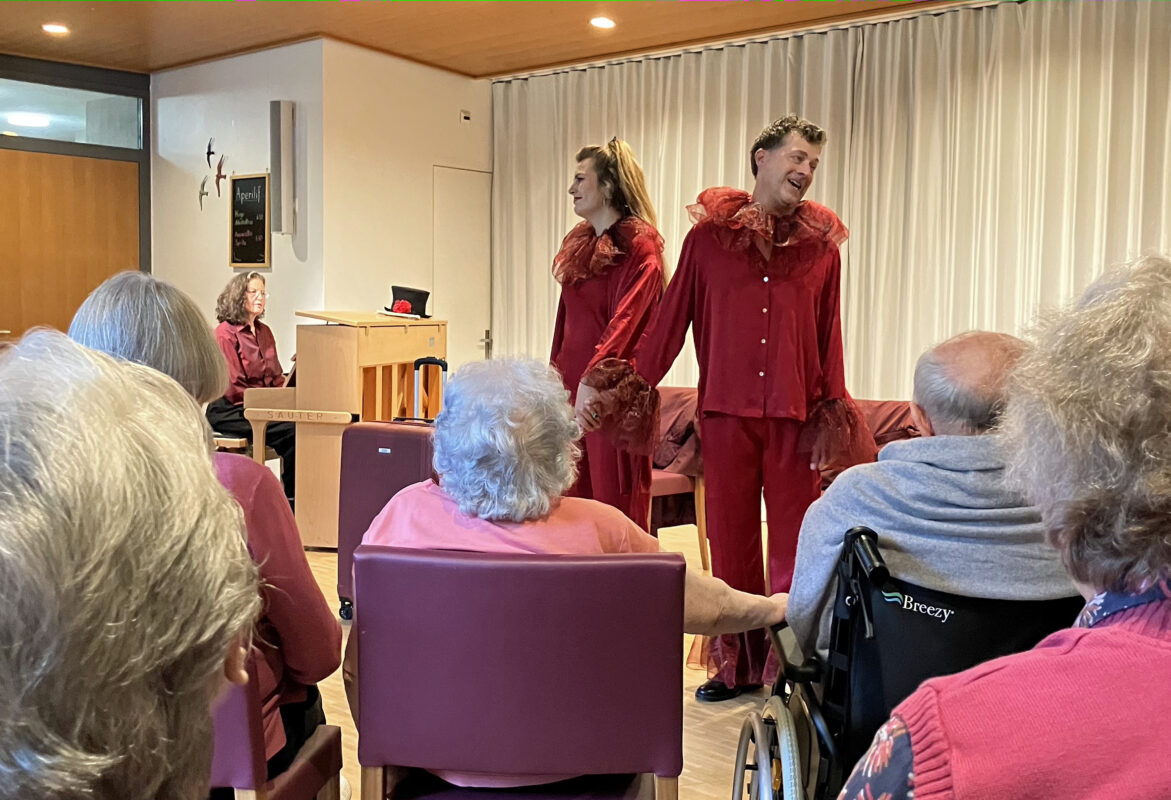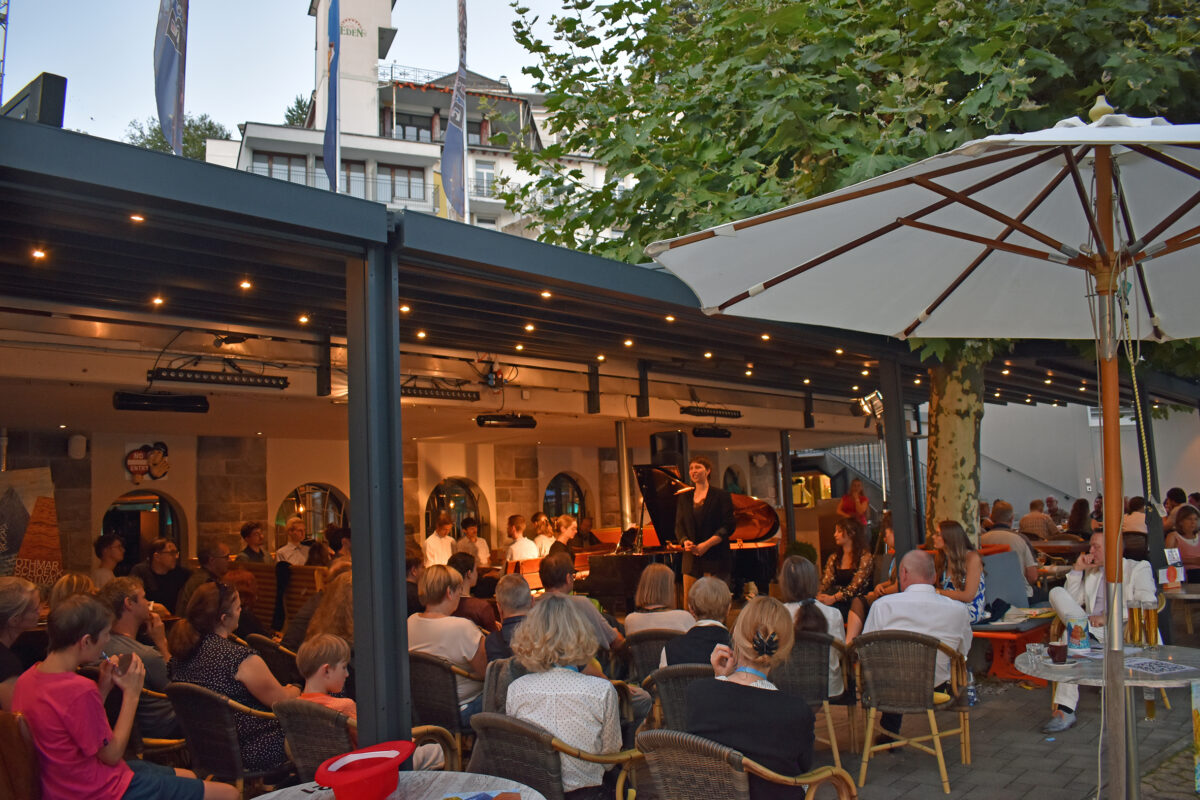"Smell a bit of the Basel madrigalists"
Only a few graduates with a master's degree in choral conducting find employment in a professional choir. The "Swiss Made" Swiss Choir Conducting Prize is now intended to promote this career entry.

Swiss music universities offer excellent training programs for choir conductors. So far, so good, but what happens to the graduates after their training is no longer the responsibility of the universities. Raphael Immoos, former professor of choral conducting at the Basel University of Music and director of the traditional vocal ensemble for ten years Basel Madrigalists, is concerned with this transition: "There are too few opportunities for highly trained choir conductors with a Master's degree to continue their studies. There is a gap between studying and working." Although there are excellent masterclasses for choral conducting, such as the recent one with Florian Helgath and the Zürcher Sing-Akademie, such courses tend to be the exception. Most choir conductors work in the amateur sector and rarely get the chance to work with professional ensembles. So if choir conductors want to make a career with professional choirs, they are dependent on sponsorship after their studies.
Competition and masterclass in one
Immoos decided to work with his professional choir to develop a program to meet this need. After giving up teaching last year, the time was right. The International Lyceum Club was willing to lend its support. This institution has been active for many years as a sponsor of music competitions of a special kind. Of course, many other sources of funding had to be used to make the project a reality. One Competition concept The opportunity to completely rethink and develop the concept was a great opportunity for the Madrigalists. It was important to Immoos to develop a competition with a promotional character that could have a lasting effect on the development of the participants.
The special thing about his competition concept is the coaching in the form of workshops and master classes. From Thursday to Saturday, February 15 to 17, there was individual coaching by Raphael Immoos and physical training by physiotherapist and lecturer Johanna Gutzwiller, as well as a total of two and a half hours of rehearsal time per participant, during which the choir worked on the specified pieces under the supervision of the lecturer. Saturday afternoon was the dress rehearsal and in the evening the concert was recorded by Radio SRF 2 Kultur. The five finalists, who were selected from the eleven applications and paid CHF 800 each for the coaching sessions, "were allowed to smell the madrigalists a little," Immoos smiled.
The competition is to be held every two years in future - that is the plan - and in the interim years the prizewinner will be allowed to plan, rehearse and perform a project with the madrigalists. In addition to the certificate for participation in the final, each participant will receive a professional sound recording and a video document that will allow them to apply for challenging jobs
Sophisticated literature, packed concert program
The program was specified by the organizer. It consisted exclusively of contemporary Swiss music. Based on Heinz Holliger's complex and socially critical work hell heaven based on poems by Kurt Marti, the young candidates had to tackle pieces by Thüring Bräm, Walter Courvoisier, Conrad Beck, Hans-Martin Linde, Javier Hagen and Frank Martin - truly no easy task. It was important to Immoos that they all rehearsed at least one piece by Heinz Holliger, which they had to bring to concert maturity in the shortest possible time.
During the course of the performance, the four conductors (Maija Gschwind, Anna Kölbener, Chiara Selva, Deborah Züger) and the one conductor (Grégoire May) took turns on the podium in quick succession. This special situation was also a challenge for the singers and could not be compared with a "normal" concert situation, as alto Isabelle Gichtbrock pointed out during the interval before the award ceremony. Nevertheless, the experienced choir members were able to create many a gripping musical moment. During the interval, the two participants Chiara Selva and Deborah Züger expressed their enthusiasm for the concept and emphasized that they were able to learn a great deal in the short, intensive time.
Deborah Züger was ultimately chosen as the winner by the three-member jury, consisting of Georg Grün (conductor of the Saarbrücken Chamber Choir), Jessica Horsley (conductor) and Lukas Bolt (Music Commission of the Swiss Choral Association), and there was no further ranking. It was nothing more than a snapshot that should not be taken too seriously, emphasized Grün, who suggested that the jury should be increased to five or even seven members next time.
To spread the judging over several instances, you could also consider giving another vote to the choir. An audience award would also be a good idea for the event. Choirs and audiences often judge from different perspectives than a jury. This would put the verdict, which should take a back seat to the training aspect, into perspective.








